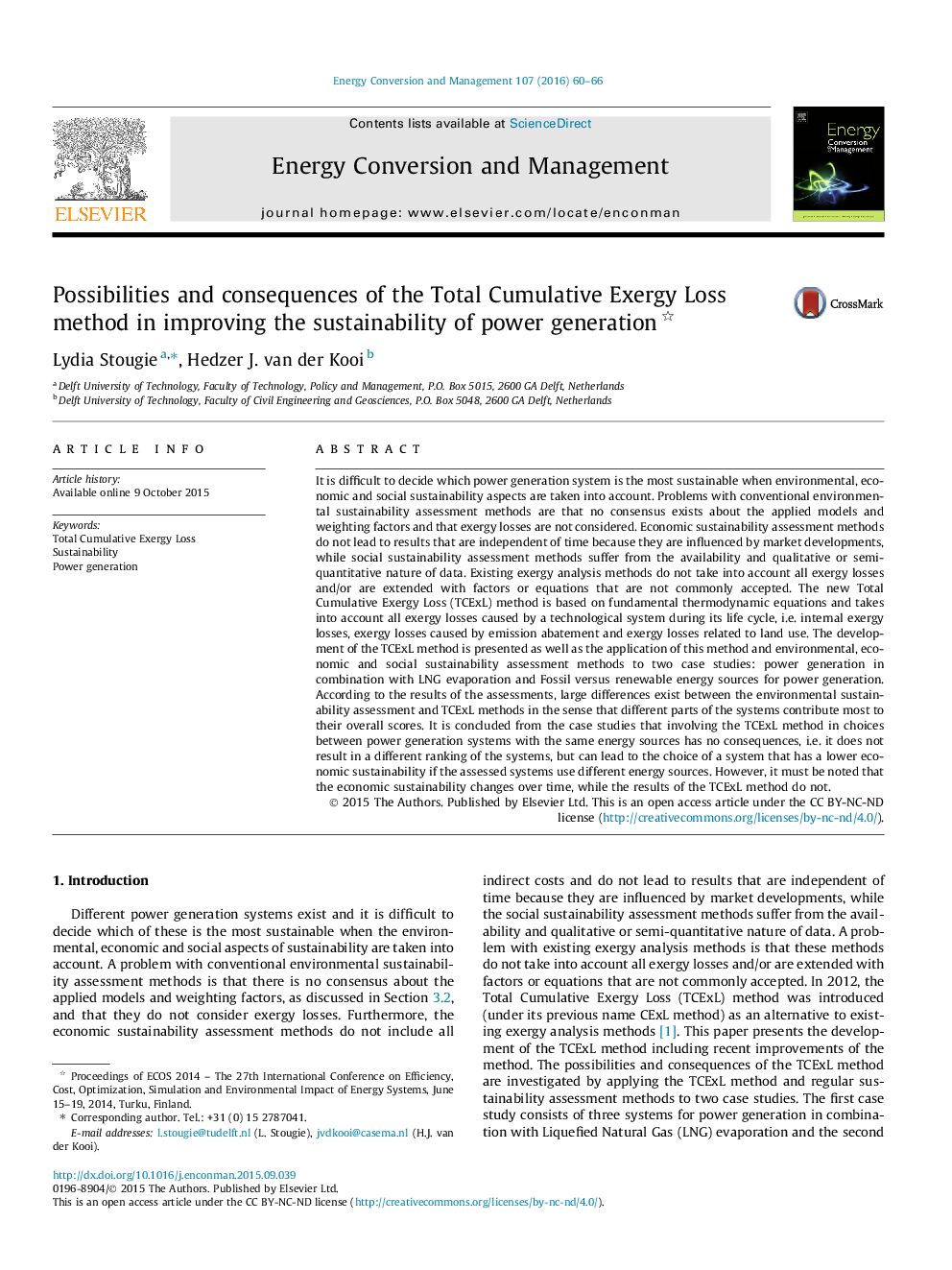| کد مقاله | کد نشریه | سال انتشار | مقاله انگلیسی | نسخه تمام متن |
|---|---|---|---|---|
| 7161543 | 1462855 | 2016 | 7 صفحه PDF | دانلود رایگان |
عنوان انگلیسی مقاله ISI
Possibilities and consequences of the Total Cumulative Exergy Loss method in improving the sustainability of power generation
ترجمه فارسی عنوان
امکانات و پیامدهای روش کاهش اگزرژی مجموع تجمعی در بهبود پایداری تولید برق
دانلود مقاله + سفارش ترجمه
دانلود مقاله ISI انگلیسی
رایگان برای ایرانیان
کلمات کلیدی
مجموع تلفات اضافی تجمعی، پایداری، تولید برق،
موضوعات مرتبط
مهندسی و علوم پایه
مهندسی انرژی
انرژی (عمومی)
چکیده انگلیسی
It is difficult to decide which power generation system is the most sustainable when environmental, economic and social sustainability aspects are taken into account. Problems with conventional environmental sustainability assessment methods are that no consensus exists about the applied models and weighting factors and that exergy losses are not considered. Economic sustainability assessment methods do not lead to results that are independent of time because they are influenced by market developments, while social sustainability assessment methods suffer from the availability and qualitative or semi-quantitative nature of data. Existing exergy analysis methods do not take into account all exergy losses and/or are extended with factors or equations that are not commonly accepted. The new Total Cumulative Exergy Loss (TCExL) method is based on fundamental thermodynamic equations and takes into account all exergy losses caused by a technological system during its life cycle, i.e. internal exergy losses, exergy losses caused by emission abatement and exergy losses related to land use. The development of the TCExL method is presented as well as the application of this method and environmental, economic and social sustainability assessment methods to two case studies: power generation in combination with LNG evaporation and Fossil versus renewable energy sources for power generation. According to the results of the assessments, large differences exist between the environmental sustainability assessment and TCExL methods in the sense that different parts of the systems contribute most to their overall scores. It is concluded from the case studies that involving the TCExL method in choices between power generation systems with the same energy sources has no consequences, i.e. it does not result in a different ranking of the systems, but can lead to the choice of a system that has a lower economic sustainability if the assessed systems use different energy sources. However, it must be noted that the economic sustainability changes over time, while the results of the TCExL method do not.
ناشر
Database: Elsevier - ScienceDirect (ساینس دایرکت)
Journal: Energy Conversion and Management - Volume 107, 1 January 2016, Pages 60-66
Journal: Energy Conversion and Management - Volume 107, 1 January 2016, Pages 60-66
نویسندگان
Lydia Stougie, Hedzer J. van der Kooi,
